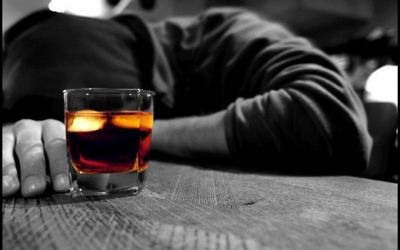- Latest news▼
-
18:00, April 18 Daily Mail: Elderly woman in China gets infected with brain-eating amoeba

-
14:19, April 18 Obesity: exercising before breakfast helps you lose weight faster

-
10:42, April 18 The Conversation: childhood trauma can cause pathological hoarding

-
08:37, April 18 Daily Mail: Satiating food reduces cravings for sweets, nutritionist says

-
18:22, April 17 First Armenian-German Conference entitled “Heart Failure Spring School”

-
08:38, April 17 Why do kids usually recover from COVID-19 more easily than adults?

-
14:37, April 16 Daily Mail: intermittent fasting is not suitable for children and women before their periods

-
16:41, April 15 Cell: in carriers of defective BRCA2 gene, sugar consumption increases cancer risk

-
15:04, April 15 305 cases of measles recorded in Armenia so far in 2024

-
14:38, April 15 Food and Environmental Virology: tea contributes to effective coronavirus control

-
12:41, April 15 Daily Mail: vitamin A, B3 and E supplements can be dangerous

-
10:56, April 15 Diabetes Care: evening physical activity is good for the heart

-
08:27, April 15 Women are more susceptible to blood loss and death during bypass surgery than men, researchers say

-
18:42, April 13 WHO: Nigeria pioneers revolutionary meningitis vaccine

-
16:43, April 13 One-third of women experience menstruation-related migraines, most often during premenopause - study

All materials
Hangover-exempt people don't exist, study says

Scientists set out to crack urban myths that suggest some people don't get hangovers and that food and water can prevent them, concluding that both are essentially fables.
"In general, we found a pretty straight relationship; the more you drink, the more likely you are to get a hangover," says lead author Dr. Joris Verster of Utrecht University in the Netherlands.
Springboarding on reports that claim 25 to 30 percent of drinkers don't experience hangovers, the research team gathered a month's worth of data on the drinking habits of 789 Canadian students.
Participants self-reported how much they consumed, how long their boozing sessions lasted and the severity of the ensuing hangovers.
Using the data the students provided, the research team calculated each individual's approximate blood alcohol concentration (BAC).
For 79 percent of students claiming they don't experience hangovers, their BAC was less than 0.10 percent, approximately two times the safe driving limits of 0.05 percent in most of Europe and slightly higher than the U.S. limit of 0.08 percent.
"The majority of those who in fact reported never having a hangover tended to drink less, perhaps less than they themselves thought would lead to a hangover," says Verster.
To refine the results, the team explored the relationship between alcohol and food or water, this time working with 826 Dutch students.
Responding to the team's questions about their latest boozing spree, 449 of the students, or 54.4 percent reported having eaten afterwards.
All participants were questioned about the severity of their ensuing hangovers and the team detected little to no discrepancy between those who had eaten or imbibed water and those who had not.
"Those who took food or water showed a slight statistical improvement in how they felt over those who didn't, but this didn't really translate into a meaningful difference," says Verster.
The pioneer study has implications for how to steer individuals away from alcohol abuse, the economic and social costs of which can be significant, yet controlled trials that do not rely on self-reporting are in order, according to Verster.
"Whilst further research is needed, this new research tells us that the answer is simple — ‘drink less'," says Dr. Michael Bloomfield on behalf of the European College of Neuropsychopharmacology (ENCP).
Follow NEWS.am Medicine on Facebook and Twitter
- Video
- Event calendar
- Archive
- Most read
month
week
day
- Pediatrics: Hypoglossal nerve stimulation implant helps with sleep apnea 1361
- Health minister: Simulation educational center will be created, assisted reproductive technology capacity will increase in Armenia 1317
- WHO: Nigeria pioneers revolutionary meningitis vaccine 1169
- One-third of women experience menstruation-related migraines, most often during premenopause - study 1136
- Women are more susceptible to blood loss and death during bypass surgery than men, researchers say 945
- Daily Mail: vitamin A, B3 and E supplements can be dangerous 922
- Food and Environmental Virology: tea contributes to effective coronavirus control 922
- Cell: in carriers of defective BRCA2 gene, sugar consumption increases cancer risk 894
- 305 cases of measles recorded in Armenia so far in 2024 886
- Diabetes Care: evening physical activity is good for the heart 876
- Daily Mail: intermittent fasting is not suitable for children and women before their periods 700
- First Armenian-German Conference entitled “Heart Failure Spring School” 493
- Why do kids usually recover from COVID-19 more easily than adults? 362
- Obesity: exercising before breakfast helps you lose weight faster 347
- The Conversation: childhood trauma can cause pathological hoarding 340
- Find us on Facebook
- Poll





